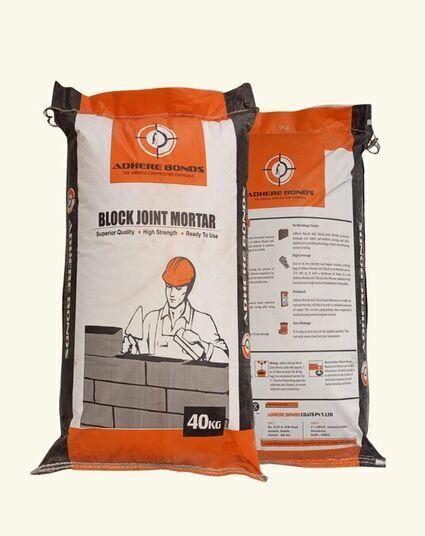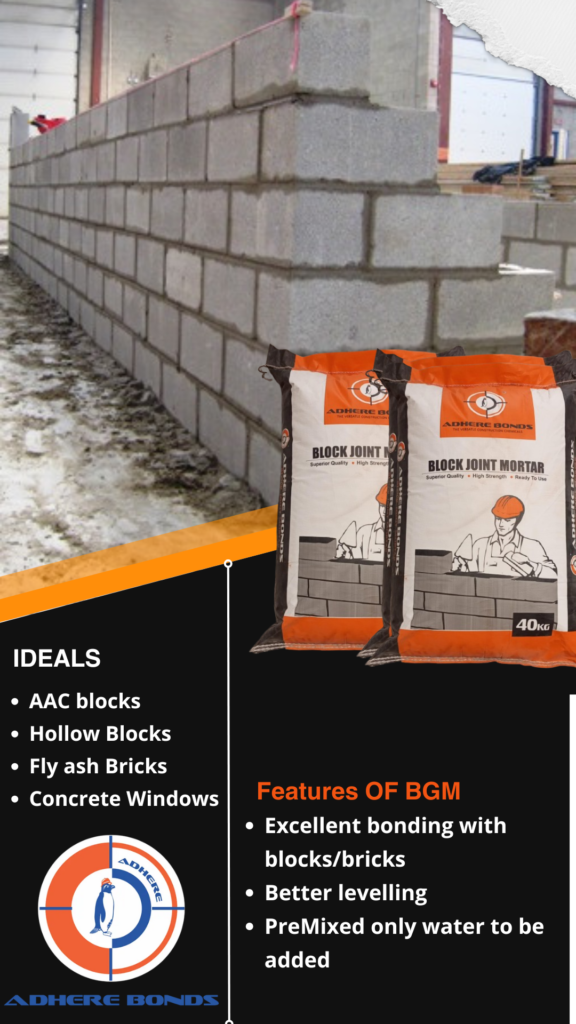Block Joint Mortar:An Essential Element for Strong Construction


About Block joint mortar
: It is a specially formulated mixture used to bond masonry blocks together in construction. It fills the spaces or joints between the blocks, ensuring structural integrity and durability. Mortar acts as the glue that holds blocks in place, preventing shifts or dislodging over time.
Composition of Block Joint Mortar
The key ingredients of block joint mortar are:
- Cement – The primary binding agent that holds the mixture together.
- Sand – Fine aggregate that adds volume and contributes to the consistency.
- Water – Activates the cement, turning the mixture into a workable paste.
- Additives/Plasticizers (Optional) – These can be included to improve workability, water retention, and setting time.
Types of Mortar for Block Joints
There are various types of mortar, each suited for different purposes. Common types include:
- Type N Mortar: Standard mortar used in general-purpose block construction, offering moderate strength.
- Type S Mortar: Stronger than Type N, often used for load-bearing walls.
- Type M Mortar: High-strength mortar, typically used in exterior and below-grade applications.
The Role of Mortar in Construction
- Bonding: Mortar creates a solid bond between blocks, ensuring stability.
- Waterproofing: The mortar mix helps prevent moisture penetration through the joints, improving the building’s longevity.
- Insulation: Mortar can enhance thermal and sound insulation properties.
- Aesthetic Finish: Mortar joints can contribute to the appearance of the masonry, with options for different joint profiles and finishes.
Factors to Consider When Choosing Block Joint Mortar
When selecting the appropriate mortar for block joints, consider factors like:
- Strength Requirements: Choose a mortar type that meets the required compressive strength for the specific project.
- Exposure Conditions: Mortar must be selected according to the environmental conditions (e.g., freezing temperatures, high humidity).
- Workability: A more workable mortar mix is easier to apply and finish, which is crucial for large or intricate masonry projects.
Applications of Block Joint Mortar
- Building Walls: Mortar is essential for bonding blocks in both load-bearing and non-load-bearing walls.
- Retaining Walls: Provides stability and prevents moisture ingress.
- Facades: The aesthetic properties of the mortar mix make it an ideal choice for facades and decorative masonry.
